|
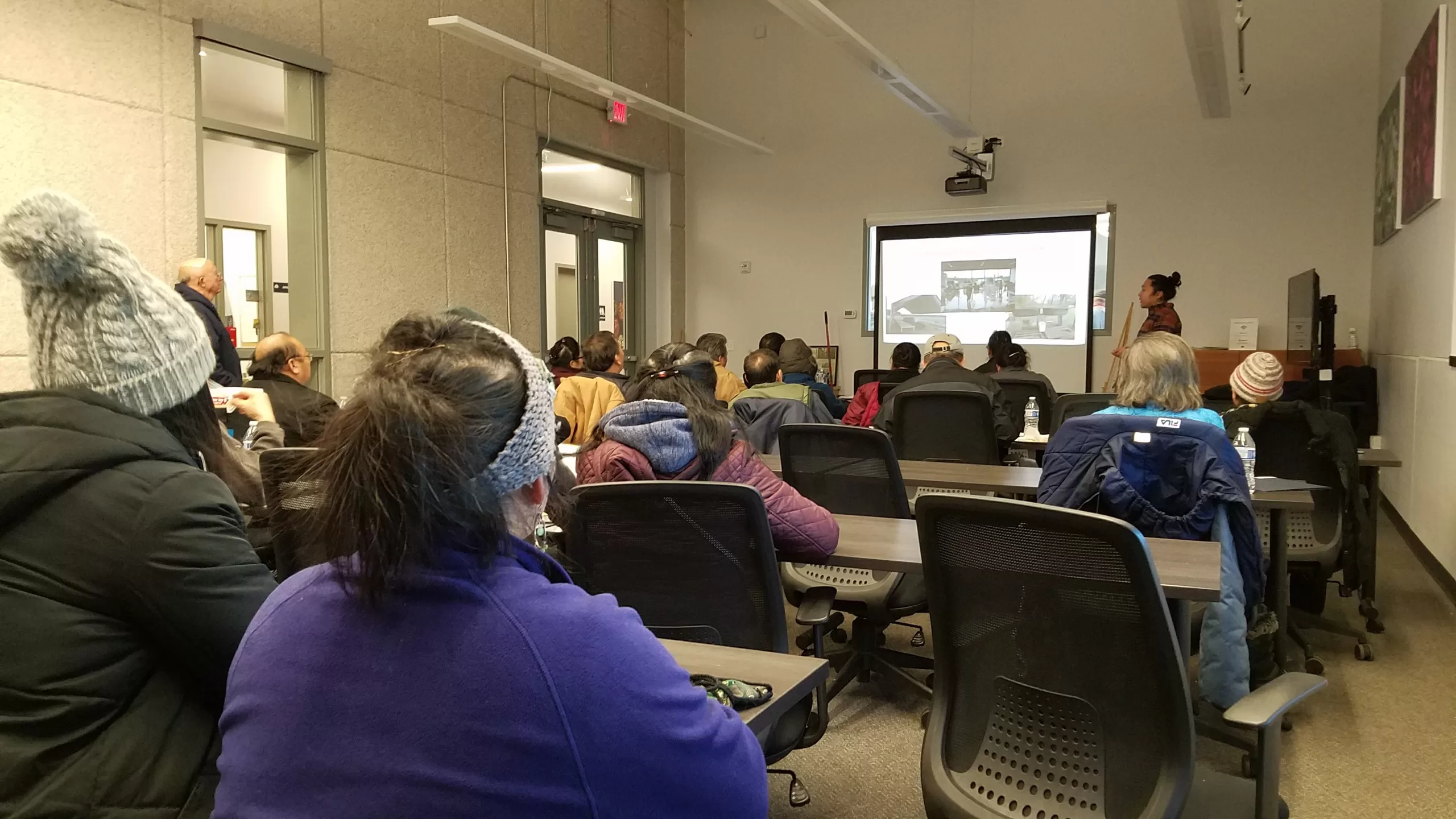
|
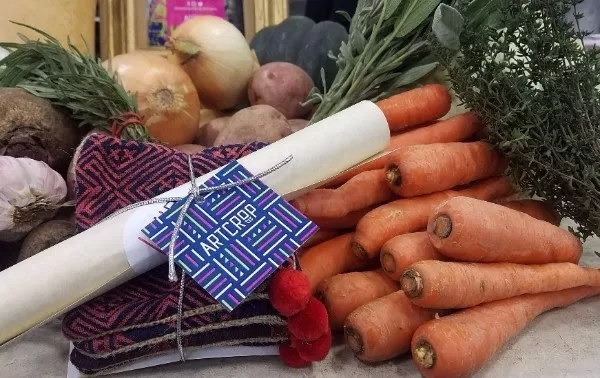

Season’s greetings from the HAFA staff! The farm is closed and covered with a bed of snow. We just finished a series of one to ones with our farmers and their children. And we are completing our budget and planning for 2018. Can you believe the holiday season is upon us? It’s the time of year that people gather with their families and friends to reflect on the past year and celebrate community. At HAFA, we have a set of core values that guide our work, and it’s especially prominent during this time of celebration. These values are varied, but some of our core values include focusing on the farmer and his or her family and a strong commitment to innovation and building community. It was those values that were exalted when we were recently awarded the Bush Prize—a recognition given to organizations that have a track record of making great ideas happen. Thank you to the Bush Foundation for this award and hurray to HAFA, our farmers and to all of you for supporting our work!
In this season of reflection, we wanted to review some of our key accomplishments this year:




 Lastly, at our annual brain dump – an event where we reflect on the previous year, refine our systems and lastly, write guidance documents to archive our core procedures – we asked ourselves, “How do our core values influence the spirit of our work?” One person who immediately answered that question was Yao Yang, Organizer and HAFA’s Food Hub Director for the past three years.
Lastly, at our annual brain dump – an event where we reflect on the previous year, refine our systems and lastly, write guidance documents to archive our core procedures – we asked ourselves, “How do our core values influence the spirit of our work?” One person who immediately answered that question was Yao Yang, Organizer and HAFA’s Food Hub Director for the past three years.
Yao said, “When I first started [at HAFA], I really didn’t understand what it meant to focus on farmers. [All] I knew was that I wanted to serve farmers… [But] now that I’ve worked with HAFA all these years, I see it– serving farmers isn’t just helping them, but creating conditions where they can help themselves. [The spirit of my work] is about trying to build equity for our farmers so that they have a better quality of life, [see that their] work really does matter, and [have] integrity. [My job is to] make sure that farmers can continue to farm, because [honestly] who else is going to do it, right?”
Yao Yang is leaving HAFA at the end of the month, but her insights also reflect the enormous impact she has made on our farmers and the growth of the HAFA Food Hub from a pilot project to a formidable, racial-equity framed, food aggregation operation. Thank you, Yao! And thank you again for all your support this past year.
Please consider donating to HAFA at the end of this year and join us on January 10th from 9-11 AM when we host a blessing ceremony and an Open House for our new office located at 149 Thompson Avenue East, Suite 210 in West Saint Paul, MN 55118. Happy Holidays!

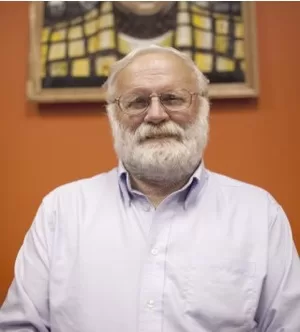

“Collaboration, especially in these times, is so powerful,” says John Flory, Special Projects Director for the Latino Economic Development Center (LEDC). For the past 13 years, LEDC has been working to support Latino entrepreneurs throughout Minnesota. Like LEDC, the Hmong American Farmers Association (HAFA) too works to uplift Hmong entrepreneurs. In fact, it was through a meaningful collaboration with LEDC in late 2011 that got HAFA started. Pakou Hang, HAFA’s Executive Director, often says if there wasn’t an LEDC or John Flory, HAFA would never have been created.
Later in 2017, John will be retiring from LEDC, and as an organization that has greatly benefited from his hard work, HAFA would like to celebrate John and his tireless commitment to both HAFA and LEDC.
John likes to joke that he is the token white guys at LEDC and HAFA. Although he was born in the United States (U.S.), John’s first words were actually Chinese (where his family were missionaries for the first three years of his life), and he grew up in Ecuador from the ages of five to 12 years old. John says his personal experiences of growing up in Ecuador, and then returning the U.S. in the late 1950’s and 1960’s, inspired him to work with immigrant communities in the Twin Cities.
John started this career in economic development with the Whittier Neighborhood Development Center in1988. While he was working there, large groups of Latino immigrants started moving into Minneapolis. Because he could speak Spanish and wanted to provide opportunities for small business owners, John helped start the Spanish language entrepreneurial program. In 1999, many graduates of the program went on to launch the Mercado Central–a vibrant, Latino community-gathering place on Lake Street in Minneapolis. The Mercado Central eventually led to the creation of LEDC, and since, LEDC has helped launch over 200 Latino businesses with sales in excess of $50 million.
In 2011, Pakou went to visit her old friend, Ramon Leon, the founder of LEDC. Pakou wanted to start a frozen egg roll business and she knew Ramon and LEDC could help. In between talks about HAACP plans and food labels, Pakou started having conversations with John around entrepreneurship and economic development in the Hmong farming community. John and Pakou discussed how they could leverage resources to assist both Latino and Hmong farmers. Soon John contracted with Pakou to interview Hmong farmers and that eventually led to the formation of HAFA.
In HAFA’s inaugural period, LEDC served as the organization’s fiscal agent. And since then, LEDC and HAFA have continued to work closely together, collaborating whenever possible; and sharing ideas, challenges, and opportunities. In fact, HAFA and LEDC received a $600,000 grant to develop a bicultural and bilingual training program aimed at increasing the farming and business acumen of immigrant farmers. The alliance of these two organizations–run by and serving minority communities– help reinforce each other’s missions and allows them to accomplish more than they could alone. Collaboration is powerful, just as John Flory sees it.
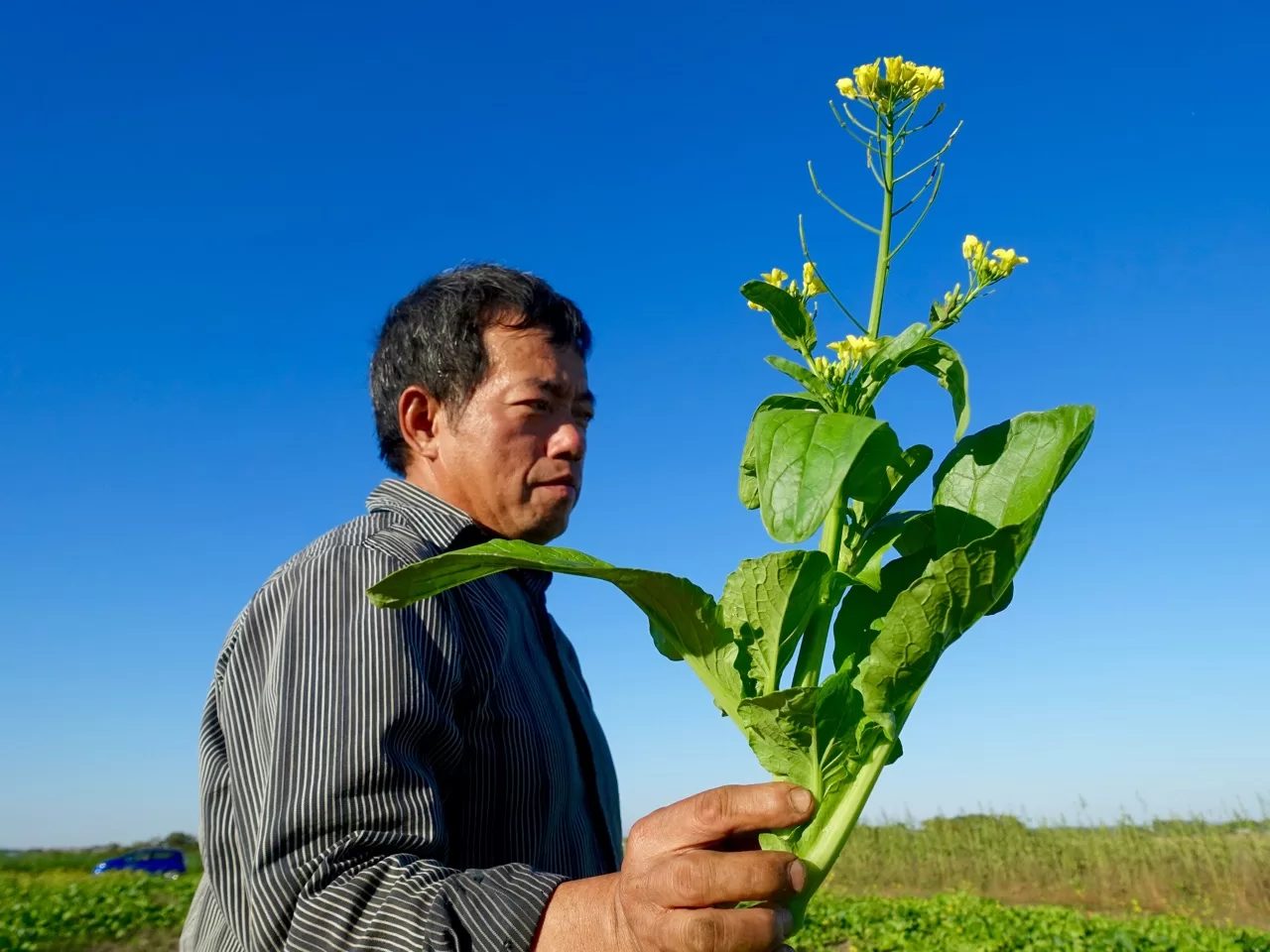
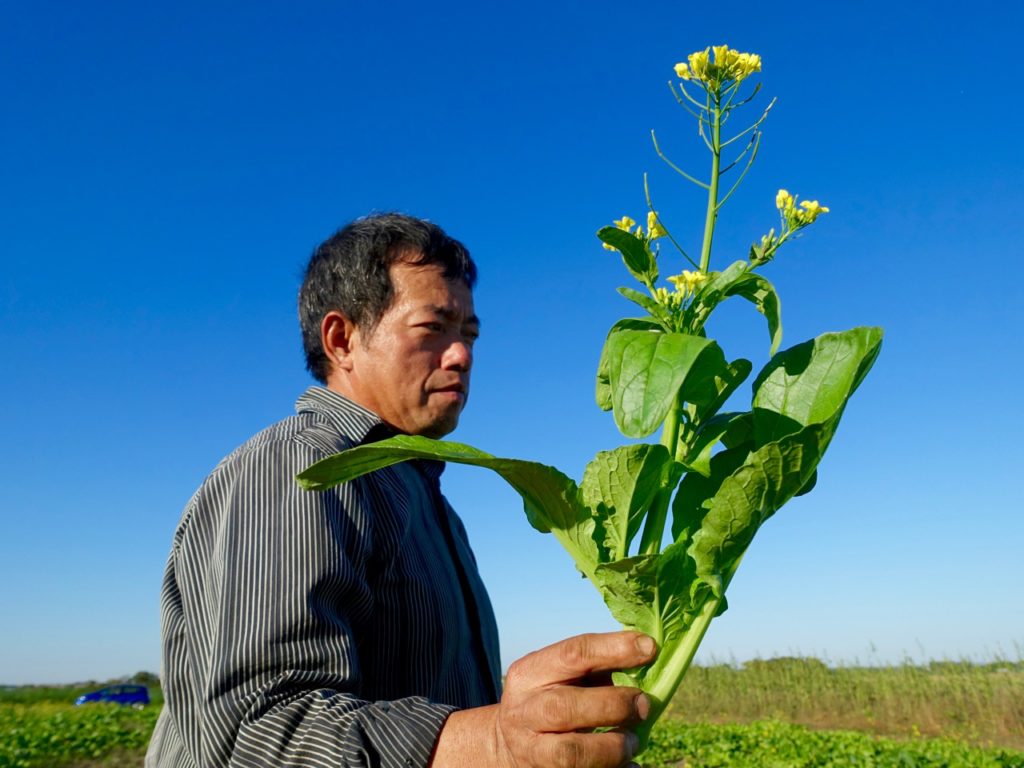 s we move into the final weeks of 2016 at HAFA, we are fondly looking back on our accomplishments, and diligently planning for next year. These past successes are particularly important to HAFA because they signify that we are growing as an organization, but also they show how our farmers are seizing previously inaccessible opportunities and growing community wealth.
s we move into the final weeks of 2016 at HAFA, we are fondly looking back on our accomplishments, and diligently planning for next year. These past successes are particularly important to HAFA because they signify that we are growing as an organization, but also they show how our farmers are seizing previously inaccessible opportunities and growing community wealth.
Naton Vang was only eight years old when he started walking alone in the tropical forest of Laos. When it thunderstormed and the raindrops collected on his white collared shirt, the only thing that kept his clothes dry was a shriveled plastic bag held high above his head. His feet would get wet because the only pair of shoes he owned were flip-flops. Only two hours by foot and he would soon reach school where he hoped to learn something new and see his friends.
Now Naton is 38. Naton left his family and home country in 2005 to pursue an exciting new chapter of life in the United States. Naton told me this lesson about his decision to leave his home:
“We must be like a bird. A bird is born into the same nest as its brothers and sisters, but it will go on its own one day. You must not stay in the same spot. Being comfortable limits your knowledge and success, if there is an opportunity take a chance. Fly away, so that you can help yourself and more people.”
Naton is the second in his immediate family to come to the U.S., while his older sister arrived soon after the Secret War in the 1970s. In 2005, Naton married his wife Pa Nou and now has two sons and one daughter. Today his mother, sister, and five brothers are still residing in Laos.
Before Naton arrived in the U.S., he came with the belief that it was prosperous and had plentiful opportunities. If you ask what Naton’s thoughts are today he will tell you “To be completely sure, am I seeing everything? I am not sure.” Naton would love to return to school to obtain higher education, but he says he is “too old” for that now.
Now, Naton plans to uplift his family’s dreams by going back to his roots in farming. Naton started farming at the age of five. Farming was a way of life for his family. Actually, farming during this time also symbolized family pride and determination for success. He spent most of his childhood living at the farm with his parents and siblings.
Naton loves farming today because it brings him joy and fulfillment that he is contributing to society by providing fresh vegetables. He also thinks it’s important for his children to know where food comes from. Naton has been a proud member of Hmong American Farmers Association since 2014. Through positive outcomes and support from HAFA, he strongly believes farming can be a way of life for Hmong American woman and men as well.
Naton would like to share these words of wisdom with you: “Don’t be afraid of creating a new plan if something is not working. The future is up to you. You are your own manager.”
With the days starting to get longer, I am reminded of how soon the HAFA Farm will open. Coordinating the farmer trainings during these winter months has shown me how critical it is for farmers  of all ages and backgrounds to pursue community and knowledge with other growers. On top of this, many of the trainings have a “train the trainer” model. This means that HAFA farmer trainings are just as much as a learning experience for the trainer as it is for the farmers.
of all ages and backgrounds to pursue community and knowledge with other growers. On top of this, many of the trainings have a “train the trainer” model. This means that HAFA farmer trainings are just as much as a learning experience for the trainer as it is for the farmers.
We’ve had a lot of familiar faces show up to most all our trainings. The consistent attendance of over 12 farm families has been a source of inspiration to me. As a non-Hmong speaker, I have been fascinated by how well the trainings have been translated by Pakou, Janssen, and Yao. One trainer even made her power point presentation in Hmong.
The farmers have been very helpful teaching me basic Hmong words so I can attempt “Hmonglish”, which is always appreciated. Getting to know the farmers on a more personal level helps facilitate trust and better understanding between different cultures.  Most of the farmers are actually tri-lingual. The most common languages HAFA farmers understand are Hmong, Thai, Lao, and English.
Most of the farmers are actually tri-lingual. The most common languages HAFA farmers understand are Hmong, Thai, Lao, and English.
An exciting development that spurred from the trainings has been the cooperative purchasing efforts. For example, HAFA members have come together to amass an order of potato seed for 11,000 pounds for example. This type of purchasing power will enable HAFA growers further opportunities to get better price points for inputs such as seeds, mulch, compost, field totes, and supplies for market
I’m looking forward to finishing out the trainings for the year, from Understanding Cooperative Farming and Farmers Marketing Tactics and Banner Creation to Perennials for The HAFA Farm and Organic Farming Best Practices.
